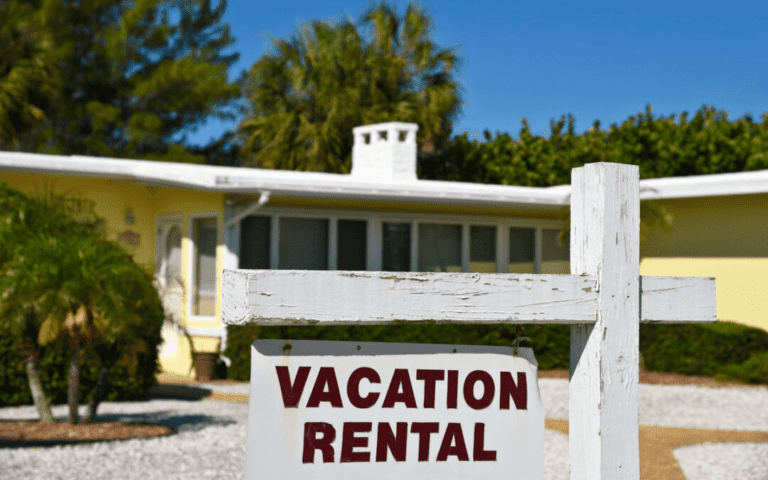Spring has sprung, which means the weather is getting warmer and it’s time to start thinking about summer plans! And if you’re a real estate investor, that might mean that you’re wondering a little bit more about the prospects of adding vacation rental properties to your portfolio. So, what does it take to succeed when investing in vacation rental properties? Would adding vacation rental to your portfolio make sense for you? Let’s dive in.
Benefits of Investing in Vacation Rentals
If you do your research and execute your plan well, you can benefit from a number of facets of short term vacation rental ownership, including:
- Easy booking through rental apps. Services like Airbnb, VRBO, and others offer multiple channels to market your property – and it’s a growing market.
- Potentially higher returns. Given the growing popularity of short term rentals, a well-placed, high-performing property can net significantly more in revenue than a traditional single family rental property.
- Long-term opportunity. The Covid pandemic led to increased popularity in short-term rental bookings as hotels shuttered or enforced regulations for the safety of their guests, and this trend doesn’t show any signs of reversing.
- You might be able to use it, too. Short term rental regulation varies from location to location, but some locations do allow owners to occupy the home for a certain number of days per year.
Of course, any kind of investment comes with risks, as well – your mileage may vary, and not all markets are equal.
Downsides of Investing in Vacation Rentals
Make sure you’re taking the following factors into consideration while doing your research on properties that you think have good short term rental potential:
- Regulation can be hyperlocal. Check into any local laws or housing association rules regarding short term rentals – some places outright ban the practice. Other locations on the other hand are extremely friendly to short term rental owners.
- You’re going to be busy cleaning. Unlike traditional rental properties where leases are 12-months or longer, short term rentals often see stays of a few days to a few weeks, and during peak vacation times there can be short turnarounds before new tenants arrive. Managing this yourself is time consuming, and hiring someone else can be costly.
- Multiple external factors can affect your success. When the economy struggles, consumers spend less on vacations. Many locations are subject to seasonality, which may mean your property sits vacant for months at a time. Waterfront property can be hit by hurricanes. Make sure you know the risks, and have plans to combat difficult times.
Being completely prepared can help mitigate a lot of these risks, and ensure that you’re successful in your investment.
Finding a Lender for Vacation Rentals
There are a lot of different ways to finance short term rental properties, including more traditional routes like borrowing from a major bank, or even using a self-directed IRA. Of course, Pimlico Capital has extensive experience in lending on short-term rental properties. Working with a private lender like Pimlico Capital can help you close quickly and with confidence on any properties you’re considering investing in. Have a property in mind now? Get an instant quote online, or give us a call at 410-855-4600 to get a live quote today!


